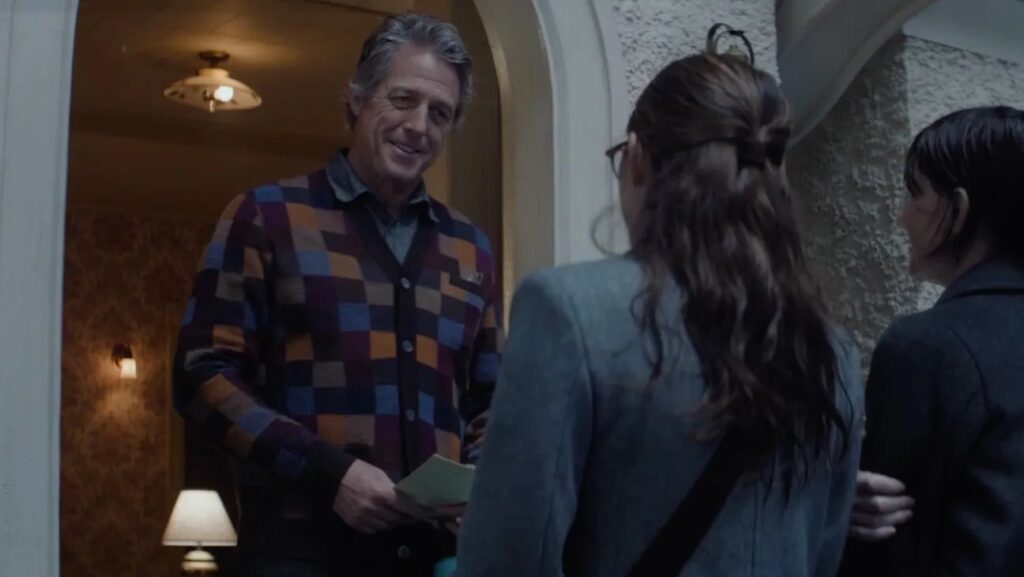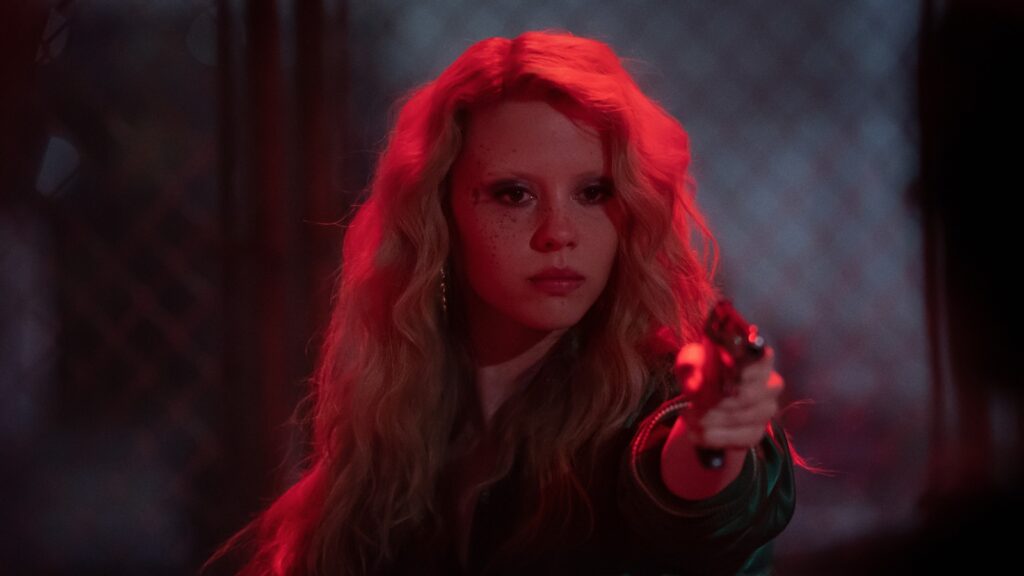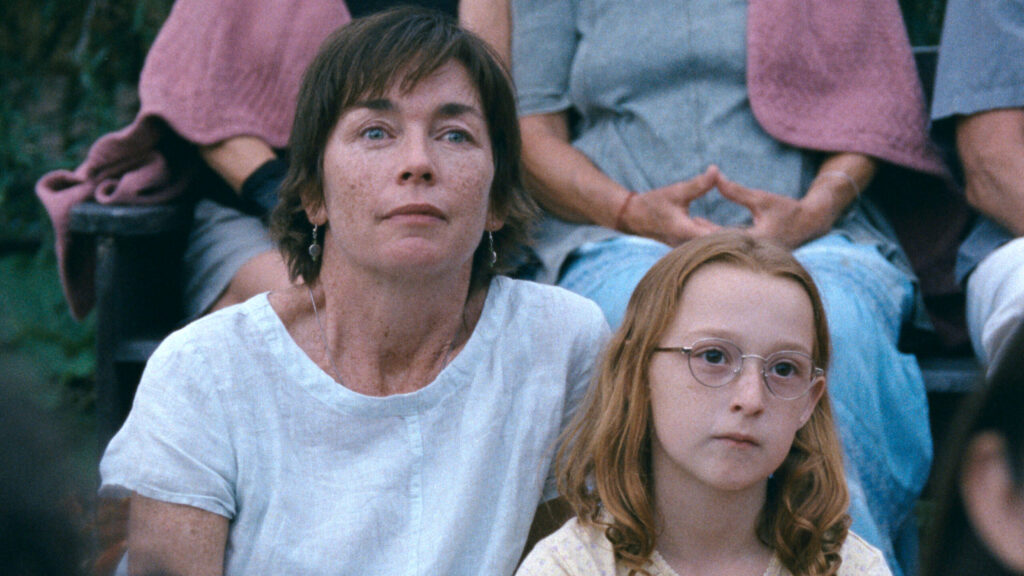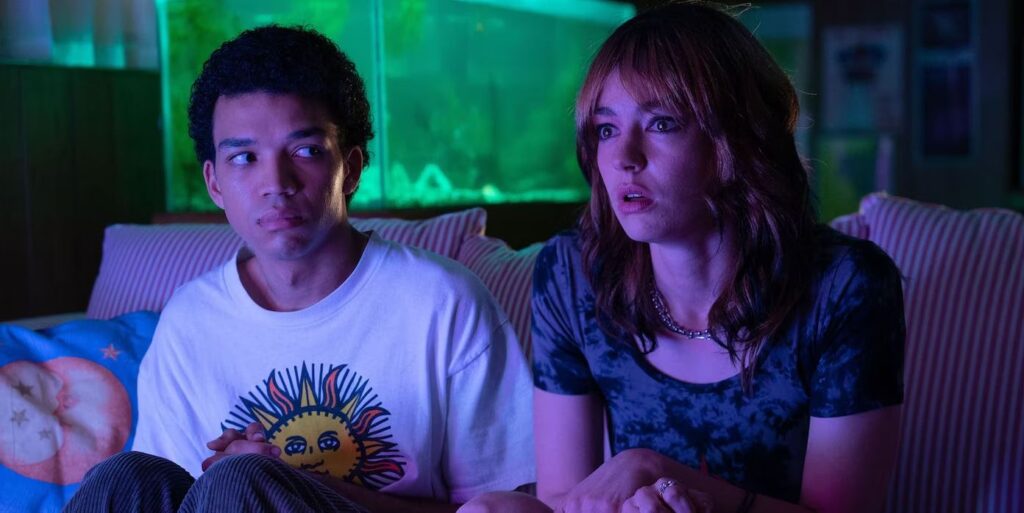Y2K: Millennium Ugh
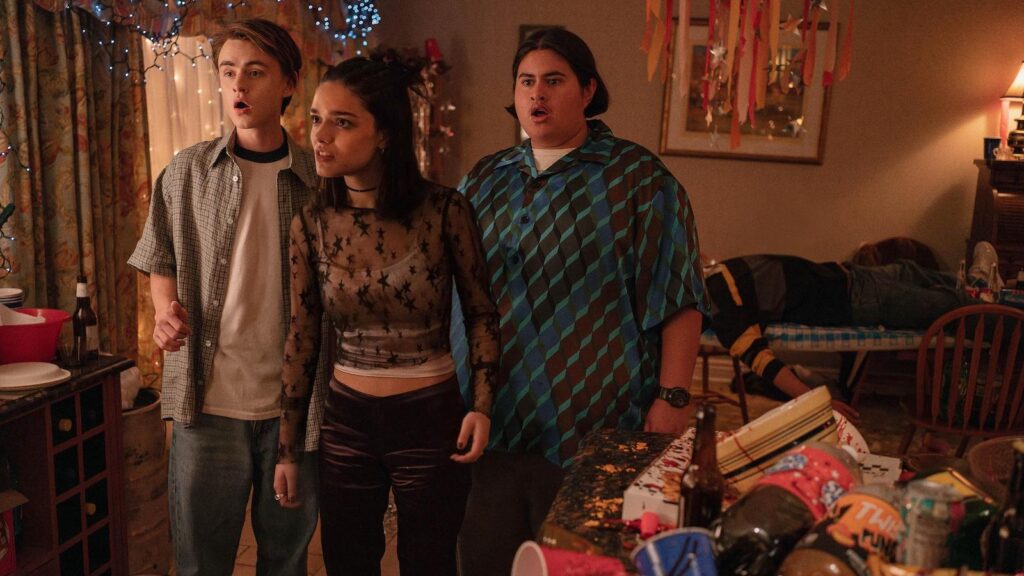
Being unpopular in high school can feel like the end of the world. Your parents are embarrassing. Your best friend is a loser. The cool kids either bully you or ignore you. The girl you have a crush on barely knows you exist. And sentient computers have hatched a conspiracy to enslave the human race.
That the last of these items feels concordant with its predecessors is the central joke of Y2K, Kyle Mooney’s occasionally inspired, ultimately tedious new horror comedy. For Eli (Jaeden Martell, one of those anodyne actors who seems destined to play teenagers into his 30s), every day feels like its own miniature apocalypse—a perpetual ritual of awkwardness and humiliation. That’s an exaggeration, of course; his parents (Alicia Silverstone and Tim Heidecker) are sweet and supportive (how mortifying!), and he has plenty of fun playing videogames and goofing around with his closest pal, Danny (a solid Julian Dennison). But Eli still feels anxious and unfulfilled, especially because Laura (Rachel Zegler), the hot brainiac whom he sweatily flirts with online, seems more interested in older, more muscular dudes. So when his humdrum Friday night turns into a chaotic free-for-all full of death and dismemberment, he’s more than ready to save the day and get the girl. Read More

